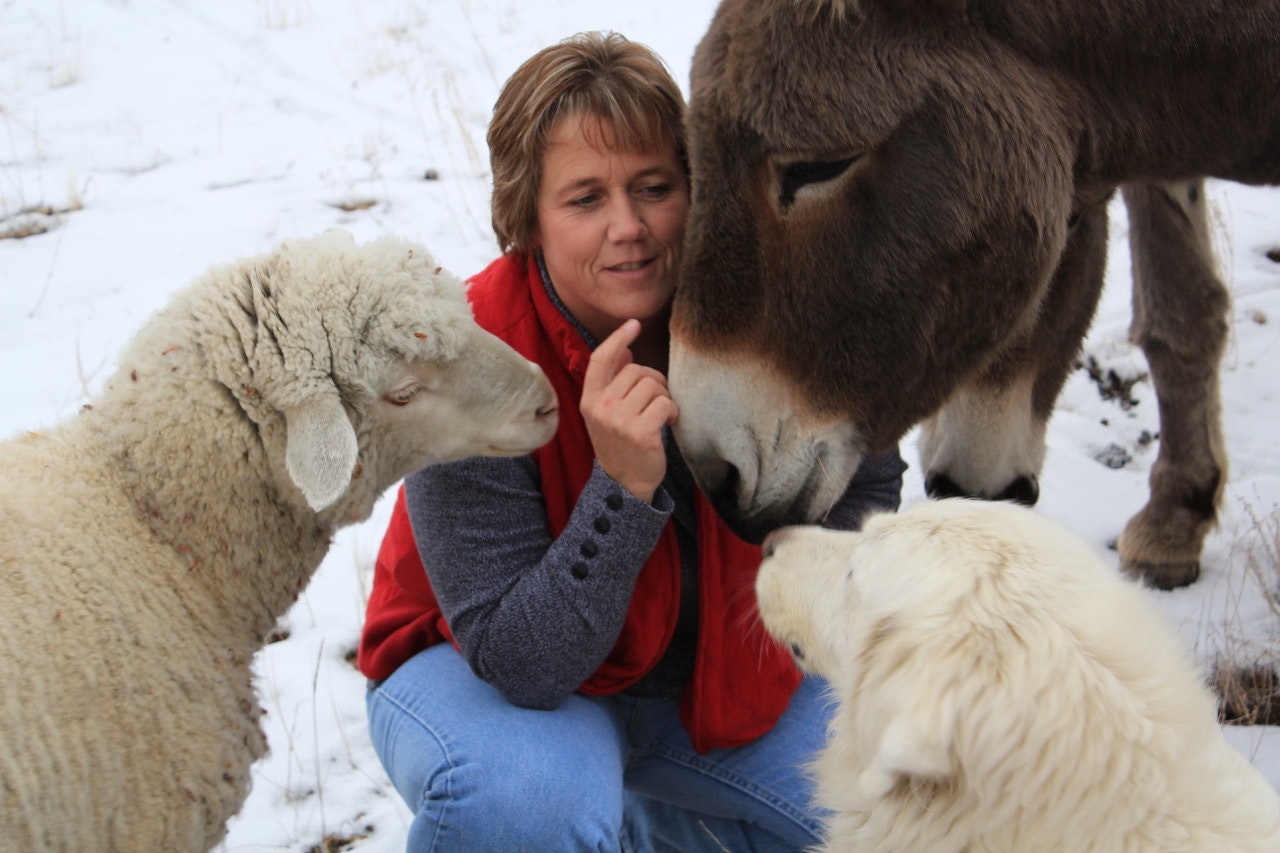The world needs more people sharing stories of life with animals.
By Cat Urbigkit, Range Writing columnist for Cowboy State Daily
A lot of my ag friends are switching social media platforms, leaving Facebook (FB) for greener pastures. Green as in $$, since FB’s commerce policy forbids posts that “promote the sale of any animals.” Although animal-sale posts are still rampant on the platform, FB began cracking down on the posts in the last few years and has increased that activity in the last few months.
But animal sales aren’t the only animal-related items undergoing the FB smackdown: People for the Ethical Treatment of Animals (PETA) has complained that FB has upped its use of warning screens on PETA videos. That means that rather than PETA videos popping up in a FB-user’s news feed, the videos are replaced with a warning screen that must be clicked on before the video can be viewed. I love these warning screens, but PETA hates them.
Since FB wrecked PETA’s social-media campaign, PETA adopted a new strategy: purchasing enough shares in Facebook to enable them to send out a press release noting this radical group is now a FB shareholder. For those who have lived under a rock and don’t know much about PETA, the animal-rights organization opposes any human use of animals (including keeping animals as pets, or used in agriculture, entertainment, as clothing, etc.). PETA “opposes speciesism, which is a human-supremacist worldview.”
The post-press-release frenzy from those opposed to PETA was predictable for those willing to read past the headlines. PETA’s shares simply enable the group “to submit a shareholder resolution, attend the company’s annual meetings, and ask questions of executives there.” That’s it. It’s not a corporate takeover; it’s a successful ploy to grab headlines. PETA doesn’t stand a chance at turning Facebook into an animal-rights activism site – at least not under the platform’s current structure. For more on that, check out this great Vox article.
Between the FB crackdown on animal sales, and the PETA press release, ag producers are leaving the platform in droves (excuse the pun), and turning to other social media platforms that allow animal sales. But I beg those involved in animal agriculture to please keep posting about their lives with animals on Facebook. Facebook may be the only place that many members of the public will know anything about animal agriculture – even though we feed the world.
Animal agriculture needs Facebook to reach the masses, to tell our stories to the world. We need to keep showing Facebook CEO Mark Zuckerberg what it is we do, and to give him reasons why he should pay us a visit every now and then, like he did to a South Dakota beef cattle outfit in 2017.
He also visited drilling rigs in North Dakota, a dairy farm in Wisconsin, and rail yards in Nebraska. I say good on Zuckerberg for his willingness to learn. It’s our job to continue to teach.
FB users have utilized a variety of ways to get around the FB policy banning animal sales, including posting animals in discussion groups (rather than the FB Marketplace). Some groups are infiltrated by animal rights activists who report the violations to get the groups shut down, and, ironically, some animal breeders are apparently reporting posts written by their competitors to the same affect.
In case you’ve had the fortune to be blissfully unaware, parts of the horse and dog sales worlds are highly competitive and somewhat cutthroat. But that isn’t a reflection of most people involved in animal agriculture. We’re more of an independent lot who prefer to do our own thing.
We need Facebook as a platform to share our stories of what it’s like to live in close association with animals, and with nature. To share the stories of how animals feed our bodies, nourish our souls, and sustain the world. To share how we develop partnerships, those critical human-animal bonds, and how animals solve our problems, make our lives both easier and more pleasant, and how living and working with animals opens our eyes to art, science, and beauty every day. To share stories of how we think about and communicate with animals, about how these human-animal relationships both fill us with wonder, and crush us when those bonds are severed.
Please, my friends, stay with me on Facebook, and continue to share the world of agriculture to the masses that are far removed from this way of life.
Cat Urbigkit is an author and rancher who lives on the range in Sublette County, Wyoming. Her column, Range Writing, appears weekly in Cowboy State Daily.





